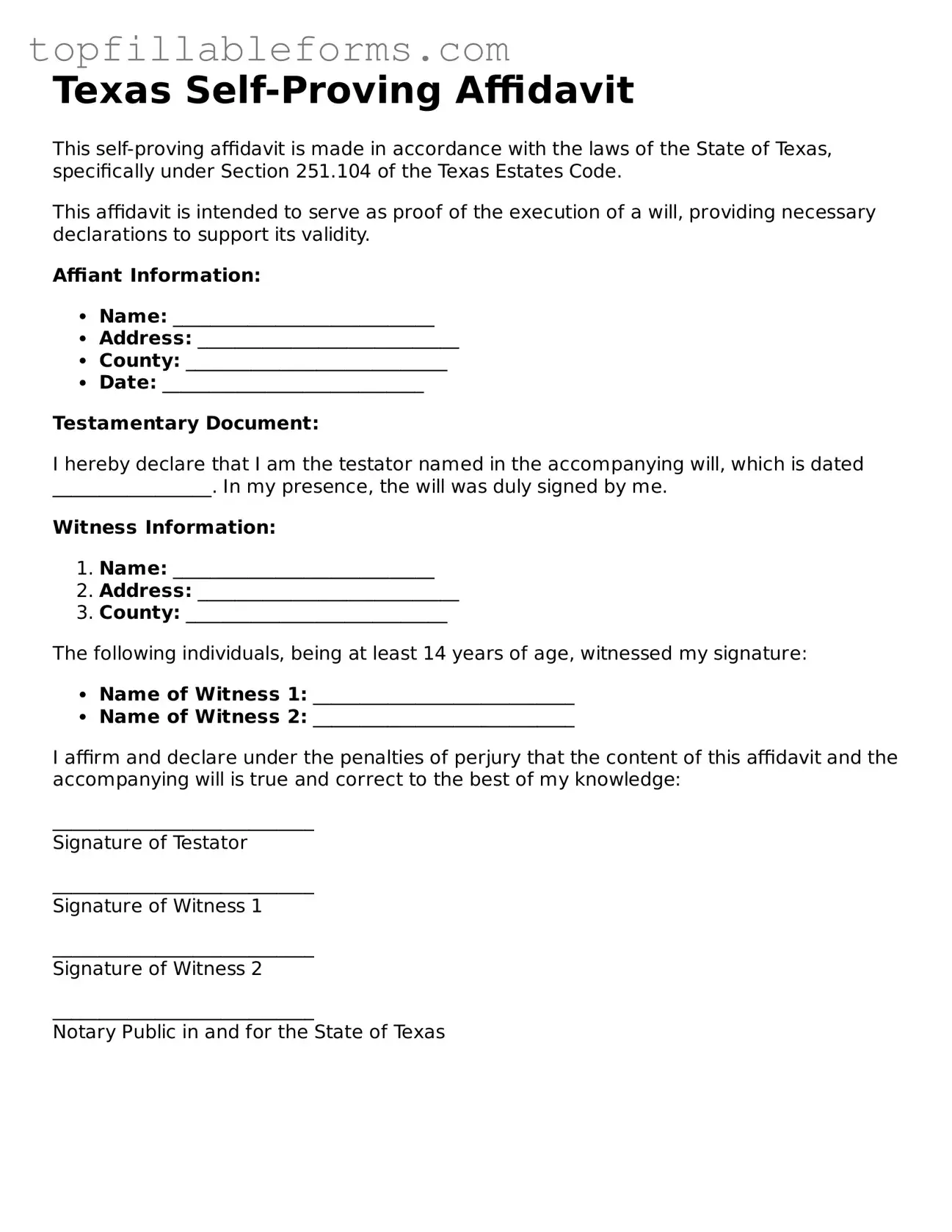Attorney-Verified Self-Proving Affidavit Template for Texas
The Texas Self-Proving Affidavit is a legal document that allows a testator's will to be validated without the need for witnesses to appear in court. This form simplifies the probate process, making it easier for heirs to settle the estate. By using this affidavit, individuals can ensure their wishes are honored while minimizing delays and complications.
Open Self-Proving Affidavit Editor Here

Attorney-Verified Self-Proving Affidavit Template for Texas
Open Self-Proving Affidavit Editor Here
Finish the form now and be done
Finish your Self-Proving Affidavit online by editing, saving, and downloading fast.
Open Self-Proving Affidavit Editor Here
or
▼ PDF File
